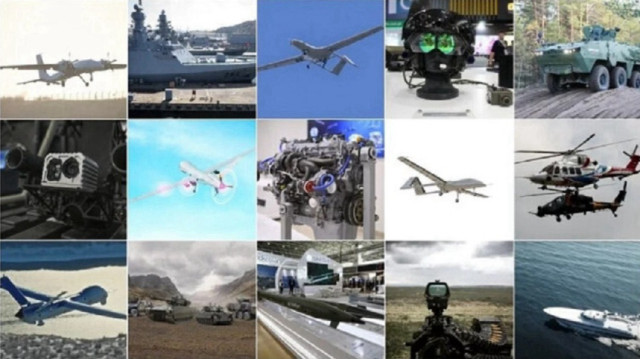Türkiye’s Defense Industry: A Success Story of Growth, Innovation, and Sovereignty
Türkiye’s defense industry has emerged as a leading force on the international stage, illustrating that improving defense capacity while expanding economic strength does not have to rely primarily on imports. Rather, the systematic development of a local armaments industry, supported by innovation, investment, and strategic financial resources, has propelled Türkiye to become a competitive global player.
Record-Level Military Budget for 2025
In 2025, Türkiye’s military expenditure is set to exceed $46 billion, reflecting a 17.5% increase from the $40 billion allocated in the 2024 budget. This record-level spending emphasizes Türkiye’s commitment to bolstering its defense capacity, even in the face of regional instability. Notably, despite the rise in defense spending, Türkiye’s government debt remains relatively low, at 25.6% of the country’s nominal GDP in the third quarter of 2024, showcasing that increased defense expenditure doesn’t automatically translate to a rise in national debt.
A Decade of Success
Over the past decade, Türkiye has made remarkable strides in defense and military exports. Turkish arms exports hit a record $7.1 billion in 2024, underscoring the growing global recognition of Türkiye’s defense capabilities. Interestingly, NATO members, such as Albania, Croatia, and Romania, have increasingly integrated Turkish-made drones into their military arsenals, signaling trust in Türkiye’s defense technologies.
One significant achievement is the recent agreement between STM, a Turkish defense company, and the Portuguese Navy, in which Turkey will build two fleet replenishment ships for Portugal. In addition, Turkish manufacturer Baykar, known for its Bayraktar drones, expanded its reach in the defense sector by acquiring the Italian aerospace giant, Piaggio Aerospace, in December 2024.
Strategic Focus on Local Production and Innovation
Türkiye’s defense industry is not only excelling in exports but also making critical strides in local production. The nation’s defense reforms focus on reducing reliance on foreign imports by developing domestic technologies. Local innovation, coupled with targeted financial investments, has driven the expansion of Türkiye’s military-industrial complex, which now includes collaborations between universities and start-ups to produce cutting-edge defense technologies.
However, despite these advances, Türkiye still faces challenges in its defense industry, notably in the absence of an indigenous microchip sector, which is crucial for producing sophisticated military hardware and software. This gap remains a significant obstacle to achieving full self-sufficiency in defense manufacturing.
Reform in Military Procurement Systems
While Türkiye’s defense sector flourishes, other countries, including the US and EU members, are grappling with procurement obstacles and bureaucratic barriers in their defense industries. These countries are looking to Türkiye’s example to learn how to streamline military procurement processes and overcome expenditure issues. Leading figures in the US defense industry, for example, have urged the new administration to adopt lessons learned from Türkiye’s success.
Modernizing Air Defense
A key challenge for Türkiye remains the modernization of its air defense capability. The country continues to wait for approval from all four members of the European consortium that manufactures the Eurofighter Typhoon jet. Delays in approval have frustrated Ankara’s defense community, as different German governments have imposed restrictions on defense deals with Türkiye. These challenges further drive Türkiye’s ambition to build indigenous military solutions, such as the locally-made KAAN fighter aircraft.
Global Recognition and Expanding Export Markets
Türkiye’s defense sector continues to grow its international presence, expanding export markets, and gaining recognition for its military technologies. In 2024, Türkiye’s defense exports hit a record of $7.1 billion. Turkish companies, such as Baykar and STM, are at the forefront of this growth, with increased investments in international partnerships and foreign acquisitions.
Conclusion: Türkiye’s Path to Sovereign Defense
Türkiye’s defense industry serves as a powerful example of how a nation can improve its defense capacity while simultaneously strengthening its economic position. Through a combination of local innovation, strategic investments, and an expanding global footprint, Türkiye has positioned itself as a formidable player in the international defense market. However, challenges remain, particularly in areas such as microchip production, which highlight the need for continued investment in critical technologies.
As the world faces growing geopolitical challenges, Türkiye’s approach to defense, centered on indigenous production and expanding export capabilities, offers a blueprint for other nations seeking to achieve greater self-reliance in defense.


Leave feedback about this